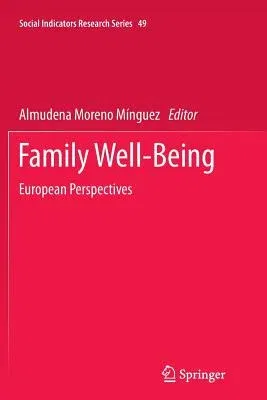Family Well-Being: European Perspectives (2013)Paperback - 2013, 9 August 2014

Qty
1
Turbo
Ships in 2 - 3 days
In Stock
Free Delivery
Cash on Delivery
15 Days
Free Returns
Secure Checkout
Part of Series
Social Indicators Research
Print Length
308 pages
Language
English
Publisher
Springer
Date Published
9 Aug 2014
ISBN-10
9401782083
ISBN-13
9789401782081
Description
Product Details
Book Edition:
2013
Book Format:
Paperback
Country of Origin:
NL
Date Published:
9 August 2014
Dimensions:
23.39 x
15.6 x
1.68 cm
ISBN-10:
9401782083
ISBN-13:
9789401782081
Language:
English
Location:
Dordrecht
Pages:
308
Publisher:
Series:
Weight:
444.52 gm

